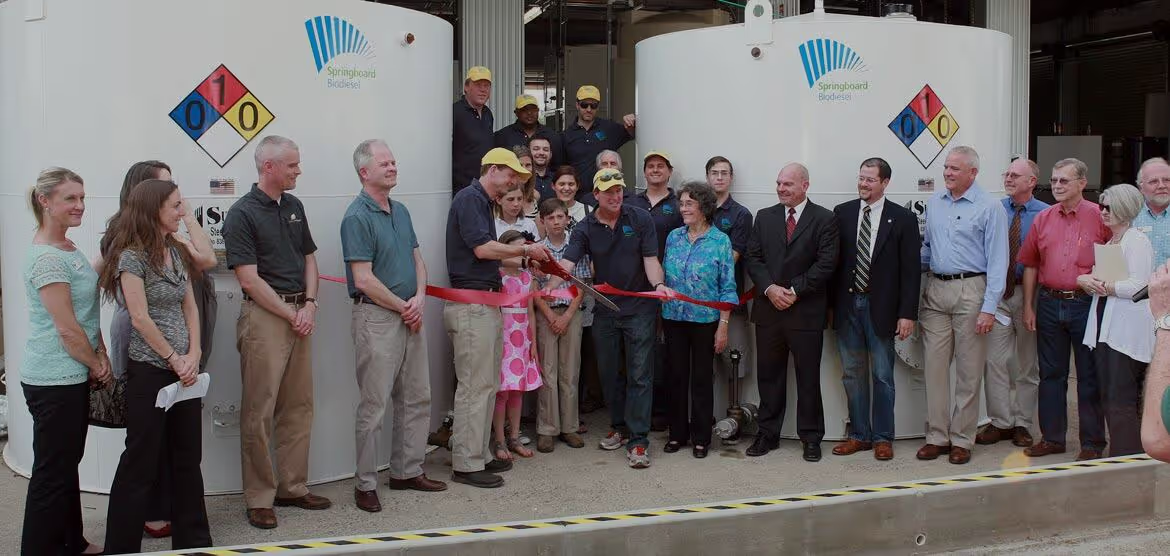- It’s Environmentally Super Friendly: When our cars, trucks, and buses burn gasoline or standard petro-diesel, these fuels emit high volumes of carbon dioxide and particulate matter, thereby adding to the already overwhelming volume of pollution in the earth’s atmosphere. According to multiple studies (here’s one by CARB), biodiesel made from used cooking oil emits 90% less CO2 and approximiately 50% less particulate matter than diesel when burned in a diesel engine.
- It’s Versatile: Biodiesel can be made from a wide variety of feedstocks (any vegetable or animal oil) including used cooking oil. Therefore, anyone from a pig farmer in Wisconsin (pig fat converts beautifully) to an olive rancher in California to a restaurant owner anywhere in between, all these people and businesses have a golden opportunity (pun intended) to collect their specific “waste” feedstocks and convert it, inexpensively, into a clean-burning, renewable fuel.
- You Will Save or Make Money By Making it Yourself: While diesel prices remain high, making biodiesel (a fuel that will run in any diesel engine without the need to convert your engine) is inexpensive. In fact, if a casino or restaurant, school, or prison can collect used cooking oil from their dining facilities for free, and get that oil into a BioPro™ biodiesel processor, the total cost to make this fuel is $1.15 cents per gallon. $1.15 is the cost of all the other inputs, including electricity, if a producer can collect their feedstock oil for free. [ROI calculator]
- Biodiesel is Better For Your Engine: It is a well-known fact that biodiesel has a superior “lubricity” when compared to regular diesel. This means that biodiesel burns with less wear in your engine. With the advent of ultra-low sulfur diesel, many of the sulphates have been removed from diesel in an effort to make that fuel burn cleaner. With the sulfates gone, ULSD now burns significantly harder in an engine thereby reducing that engine’s expected lifespan. With the addition of even a small blend of biodiesel to diesel (B2 to B20), a diesel engine will burn with considerably less wear. [Biodiesel and engine life]
- It’s Domestic and Local: If you make it in 50 to 100 gallon batches from the feedstock you have available and use is it locally in your engine, generator or heating oil furnace, you are saying something strong to “the man” and fulfilling the command on inumberable bumper stickers.
- (Bonus Benefit) Job Creation: As the United States and the world contends with this economic crisis, one of the major challenges we face is job creation. Producing biodiesel can be (and has been) an excellent engine for job creation. Waste oil collection, research into alternative feedstocks, domestic crop production and harvesting, and biodiesel production all require attention and expertise. By investing in biodiesel fuels, and sparking a further increase in demand for biodiesel, we are motivating more people to get involved in a clean-tech industry that fosters energy independence and contributes to a solution for global climate change.

Matt Roberts, President of Springboard Biodiesel













.svg)
